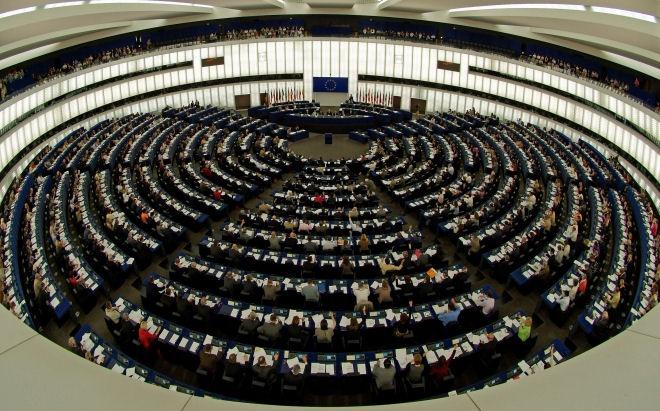Debate about Europe
National level where possible, European level where necessary. That is the Cabinet's stance on European cooperation. On Thursday 9 february 2017 the House of Representatives had a debate with Foreign Minister Mr Bert Koenders and Prime Minister Mr Mark Rutte about the State of the European Union. Dutch members of the European Parliament also took the floor in this annual debate in the Plenary Hall of the House of Representatives.
Prior to the debate the members of the European Affairs committee had talks with the members of the European Parliament (MEPs) in attendance. Topics discussed included the future of Europe, Brexit and migration.
Debate about Europe
The debate was about a letter from minister Koenders about the State of the European Union, in which the Cabinet makes known its view of European cooperation. According to the Cabinet there is no doubt that the Netherlands has benefitted from this cooperation. The Netherlands has gained more influence on the world stage, for instance, and is better able to cope with major social issues such as climate change and migration than it would be as an individual country. Nevertheless the Cabinet wants to protect the Netherlands from loss of its specific characteristics. Not every problem has to be solved at European level: member states can do a lot on their own.
Migration, security and internal market
In his letter minister Koenders also addressed the impact of Brexit and a couple of major EU issues, such as migration, security and economic and social development. Mr Koenders also covered initiatives the House of Representatives has taken to enhance cooperation between the national parliaments in Europe.
Members of the European Parliament
The debate with Minister Koenders and Prime Minister Rutte took place in the Plenary Hall. The MEPs who took part in the debate sat in the seats of their fellow party members in the House of Representatives. During the debate MEPs have less rights than MPs. They are allowed to speak, but they are not allowed to interrupt the members of the House of Representatives, the members of the Cabinet or each other. Neither are they allowed to put forward motions or to co-sign motions put forward by members of the House of Representatives.
